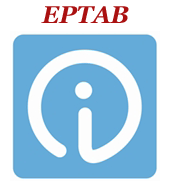Should European Advertisers Introduce The EPTAB, Its Own Behavioural Targeting Icon?
by Ciaran O'Kane on 8th Apr 2010 in News


The EU has no love for the cookie, and wants to implement legislation that will severely restrict its use. Retargeting will become impossible to do under new legislation, and any publisher looking to drop a cookie on its user to track behaviour will have to make EVERY unique user aware of the practice. Will it be a pop-up box with an opt-in for the user? You can bet that visitors will get irritated by continuous pop-ups every time they visit their favourite European publisher. Cue a big surge in traffic for sites based in the US and elsewhere where good sense seems to be winning the day in the bid to preserve online privacy.
What can be done to placate EU legislators as they look to wreck the future prosperity of the digital media sector here? We could follow the example of the US advertising industry and introduce our own behavioural targeting icon. Let’s give the icon the working name, “EU Privacy Tab” or “EPTAB” for short. Every time an ad is served to a user based on cookie data, the ad should display the EPTAB icon at the bottom of the unit.
Users will be able to click the icon on BT powered ads. They will be taken to a page explaining how the advertiser used their online behaviour and demographic profile to deliver them targeted ads.
The EPTAB icon will become immediately recognisable, and site visitors will know whether their data is being used to display an ad based on their past online behaviour. Users should also have the choice of opting-out if they wish. They can then make the choice not to visit that site again if they feel it’s compromising their online privacy.
The idea of forcing a mandatory opt-in on the European online sector is lunacy, and will harm the future of publishers and innovation in the online advertising sector. A voluntary code of practice would be a far more practical and would put the user in a good position to opt-out of targeted ads if they chose to. I think the various industry bodies need to be more pro-active when engaging the EU, and something like this initiative could go some way to addressing the privacy concerns currently held by EU legislators.








Follow ExchangeWire